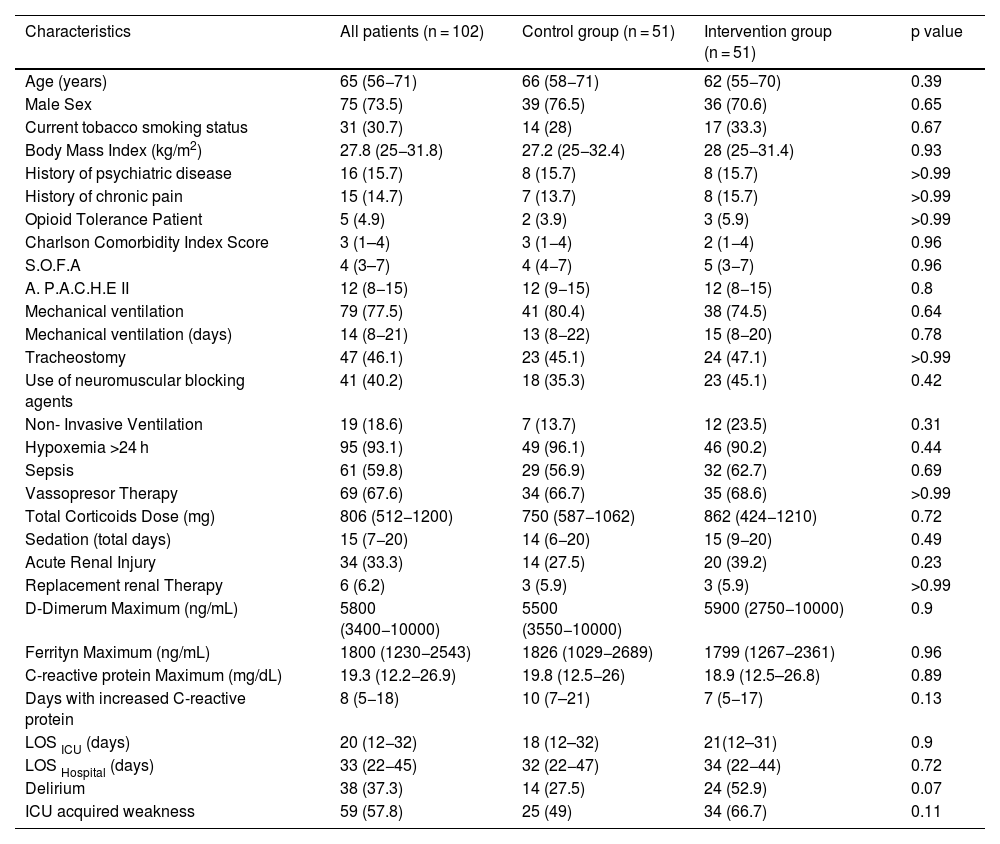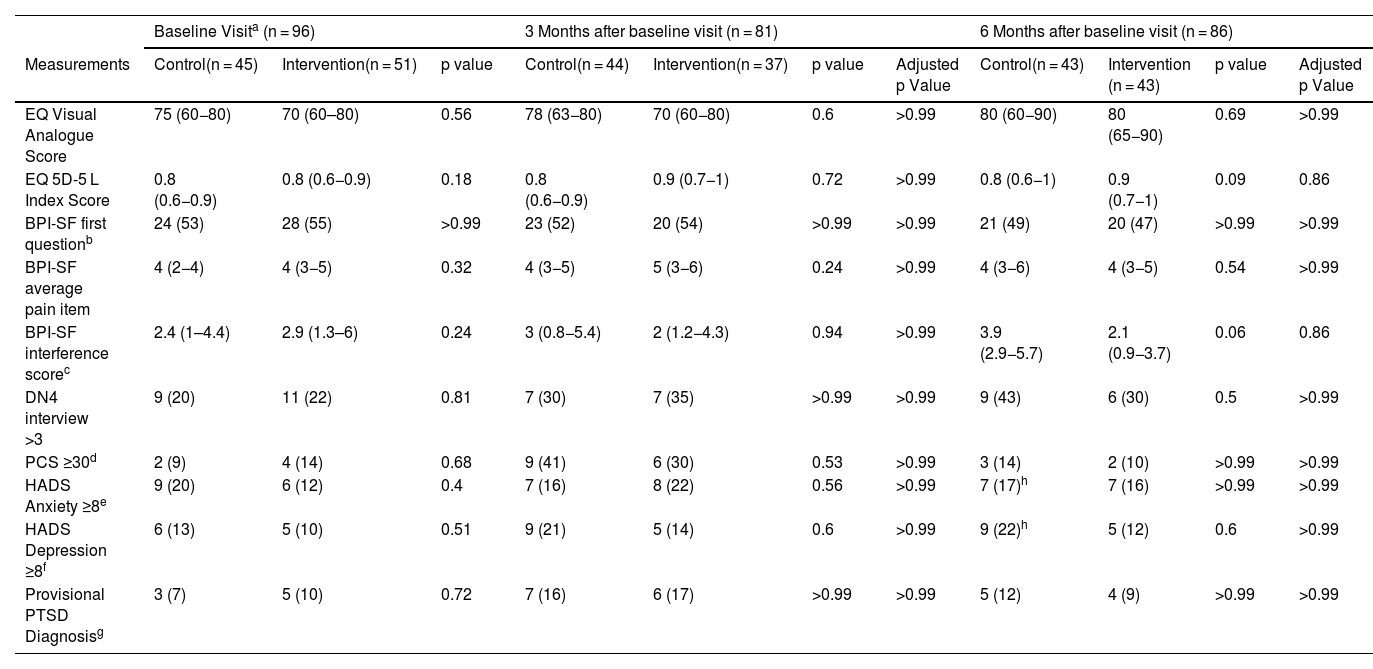Critical COVID-19 survivors are at risk of developing Post-intensive Care Syndrome (PICS) and Chronic ICU-Related Pain (CIRP). We determined whether a specific care program improves the quality of life (QoL) of patients at risk of developing PICS and CIRP after COVID-19.
MethodsThe PAIN-COVID trial was a parallel-group, single-centre, single-blinded, randomized controlled trial. The intervention consisted of a follow up program, patient education on PICS and pain, and a psychological intervention based on Rehm’s self-control model in patients with abnormal depression scores (≥8) in the Hospital Anxiety and Depression Scale (HADS) at the baseline visit. QoL was evaluated with the 5-level EQ 5D (EQ 5D 5 L), mood disorders with the HADS, post-traumatic stress disorder (PTSD) with the PCL-5 checklist, and pain with the Brief Pain Inventory short form, the Douleur Neuropathique 4 questionnaire, and the Pain Catastrophizing Scale. The primary outcome was to determine if the program was superior to standard-of-care on the EQ visual analogue scale (VAS) at 6 months after the baseline visit. The secondary outcomes were EQ VAS at 3 months, and EQ index, CIRP incidence and characteristics, and anxiety, depression, and PTSD at 3 and 6 months after baseline visits.
ConclusionsThis program was not superior to standard care in improving QoL in critical COVID-19 survivors as measured by the EQ VAS. However, our data can help establish better strategies for the study and management of PICS and CIRP in this population.
Trial registration# NCT04394169, registered on 5/19/2020.
Los supervivientes de COVID-19 crítica tienen riesgo de desarrollar Síndrome post-cuidados intensivos (SPCI) y dolor crónico relacionado con la UCI (CIRP). Nuestro objetivo fue comparar si los cuidados específicos mejoran la calidad de vida (CdV) de los pacientes con riesgo de desarrollar SPCI y CIRP tras la COVID-19.
MétodosEl ensayo PAIN-COVID se trató de un ensayo controlado aleatorizado de grupo paralelo, unicéntrico y uniciego. La intervención consistió en un programa de seguimiento, educación al paciente sobre SPCI y dolor, y una intervención psicológica basada en el modelo de autocontrol de Rehm en pacientes con puntuación de depresión anormales (≥8 de la escala HADS (Hospital Anxiety and Depression Scale) en la visita basal. La CdV fue evaluada mediante EQ 5D de 5 niveles (EQ 5D 5 L), los trastornos del ánimo con HADS, el trastorno de estrés post-traumático (TEPT) con la lista de comprobación PCL-5, y el dolor con el formulario abreviado BPI (Brief Pain Inventory), el cuestionario DN4 (Douleur Neuropathique 4), y PCS (Pain Catastrophizing Scale). El resultado primario fue determinar si el programa era superior al estándar de cuidados en la escala analógica visual (EVA) de EQ transcurridos 6 meses de la visita basal. Los resultados secundarios fueron EVA de EQ transcurridos 3 meses y el índice EQ, la incidencia y las características de CIRP, así como ansiedad, depresión y TEPT transcurridos 6 meses de las visitas basales.
ConclusionesEste programa no fue superior a los cuidados estándar para mejorar la CdV en los supervivientes de COVID-19 crítica, según la medición EVA de EQ. Sin embargo, nuestros datos pueden ayudar a establecer mejores estrategias para el estudio y manejo de SPCI y CIRP en esta población.
Registro del ensayo# NCT04394169, registrado el 5/19/2020.











